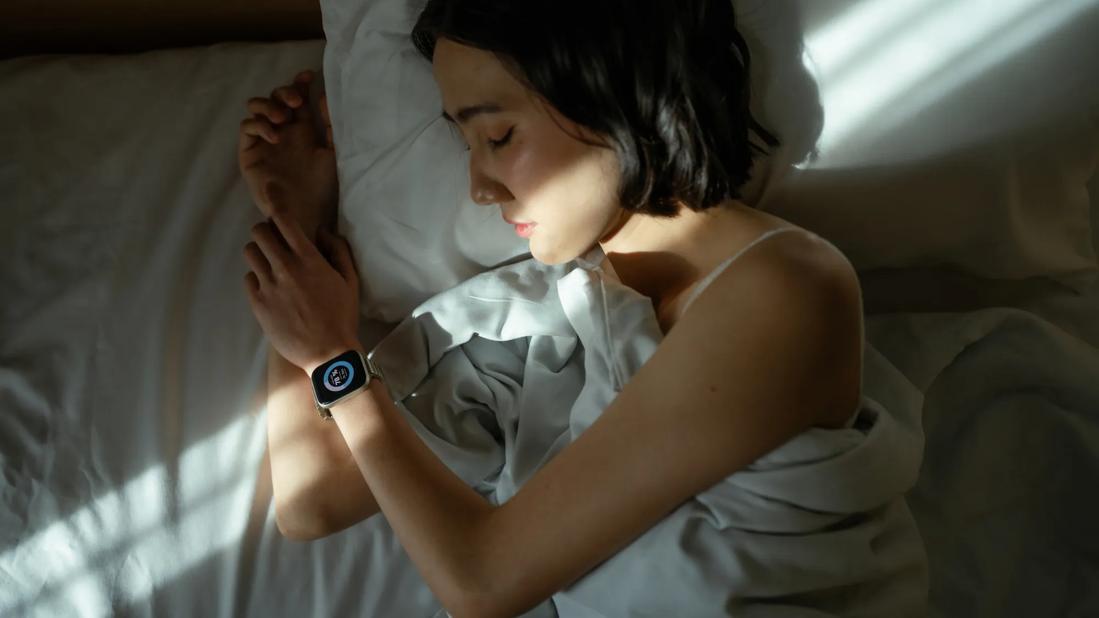Do Sleep Trackers Help You Achieve Better Sleep?
These devices can help shed light on what’s happening with your body during rest

According to a 2020 poll from the U.S. National Sleep Foundation, half of all Americans feel sleepy three to seven days a week. There are probably a variety of contributing factors, like stress or sleep disorders.
But using a sleep tracker may help you figure out just how much sleep you’re getting and shed light on any concerns worth bringing to a doctor.
Sleep medicine specialist Brian Chen, MD, explains the science behind these devices and when they’re appropriate for use.
How sleep tracking works
Sleep trackers monitor how you sleep using built-in sensors. Every tracker comes with a different set of features, but they often keep track of things like:
- Body movement
- Body temperature
- Heart rate
- Blood oxygen levels
- Breathing and snoring
- Total sleep and wake time
“Together, these measurements tell us how long you’re sleeping and how well you’re sleeping,” says Dr. Chen. “They shouldn’t be used to self-diagnose a disease or disorder, but they can clue you in if something is off or if there’s a pattern of behaviors that’s disrupting your ability to rest.”
Benefits of tracking sleep
Sleep trackers may help you better understand your sleeping habits so you can improve your sleep quality. Sometimes, that may mean you’ll need to make changes to your sleep environment. Or it may mean you’ll need to work on keeping a consistent sleep schedule. But homing in on what’s working and what’s needed is key to better rest. Plus, it’s possible you could catch early signs of potential sleep disorders like obstructive sleep apnea or insomnia.
“While digital apps and devices can’t replace formal testing, they can give your doctor a general idea of your total sleep time, your sleep/wake cycle and how disrupted your sleep may be,” notes Dr. Chen.
Different kinds of sleep trackers
There are basically two types of sleep trackers:
- Wearables — trackers worn on your body
- Nearables — trackers that rest on or beside your bed
Wearable trackers come in various shapes and sizes, like smartwatches, fitness trackers, rings, headbands, armbands and chest straps. By having direct contact with your body, they can record data like your heart rate.
Nearable devices can be slipped under a mattress or sit on your bedside table to detect movement and breathing patterns. They can also use radar, radio or video technology from a bedside table to detect snoring or measure other factors like room temperature or noise levels that have an impact on your sleep quality.
A note on limitations and accuracy
Sleep trackers have improved over the years. They’re perhaps best at measuring the difference between wake and sleep cycles. Research has also found promising results with multisensor sleep trackers. Still, not all sleep trackers are universally accurate. These devices can sometimes be overly sensitive.
“Your smart watch or fitness device is likely to overestimate sleep efficiency — the percentage of time you’re actually asleep while in bed,” clarifies Dr. Chen.
Plus, some may claim to track how much time you spend in different stages of sleep, but there’s no real way to measure this accurately without getting a sleep study in a medical setting.
“If you want to track the stages of sleep, you’ll need to have an electroencephalogram (EEG), where electrodes are placed on your head in a sleep lab,” states Dr. Chen.
For advice on the best sleep trackers, talk to a healthcare provider for recommendations. They can prescribe at-home medical testing devices or suggest commercial devices the U.S. Food and Drug Administration (FDA) has approved for sleep tracking.
When you should consider tracking sleep
Tracking your sleep can help you recognize patterns in your sleeping habits. If you’re waking up in the middle of the night, feeling groggy during the day or just curious about what’s happening to your body while you’re sleeping, a sleep tracker can provide insightful information.
Some apps and programs may also offer coaching on how to improve your sleep over time. For example, the Sleep by Wockr app can assess your sleep disorders risk, offer useful strategies for better sleep and explain how to get help from an expert.
“Not all wearable devices are FDA-approved, and not all of the data is accurate, but they’re still useful,” reiterates Dr. Chen. “Consumer sleep technologies offer a wonderful, relatively inexpensive way to become more engaged in your overall health, and they give you information you can bring directly to your doctor.”